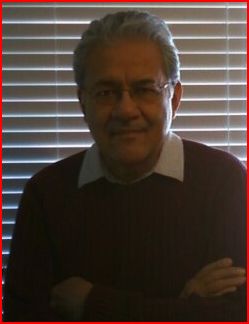
 By Leonard Adame
By Leonard Adame
“Them that’s got shall get, them that’s not shall lose.”—Billie Holiday
I wanted to take Mickey Mantle’s place in Yankee Stadium. I knew I too could run to first in three seconds or less, hit 500-foot homers and throw out Roberto Clemente from dead centerfield. Oh, well.
When I was coming up, in fact, I could slam a fastball further than bigger kids. And I pitched bullets for the North Fresno Rotary Little League Team. And a weird thing happened when I pitched: The fans disappeared. I didn’t hear anyone either, not even the ump. The only person I saw was my dad on the other side flashing signals to me like Yogi Berra. I soon learned the habits of opposing hitters and usually struck them out.
It was as close to what I thought heaven was, running bases, shagging flies, playing pepper, the spring sun on my neck, the sweat washing me, the coolness of a water-shaded fountain after practice. Maybe it was a Zen thing before I knew what that meant.
Now, as I’ve realized that the perennial slugs of the aging process have caught up to me, that physical ability isn’t a lifetime perk. That Zen is gone. I’m in my 60s, and I can still move around fairly well, though not like Mantle or Clemente. Takes a second or two longer to stand up, my son can beat me now at arm wrestling, can’t hop around looking for eggs with my grandkids and I can’t rifle the fastball anymore.
More ominously, I’ve contracted leukemia (it’s manageable), so I’ve weakened a little more, what with dozens of pills I have to take and which leave me tired. Since February, I’ve spent a week in the hospital, about three nights in emergency rooms (the medicine raises my blood sugar, not good for a diabetic). I’ve also managed to trip and hurt my knee fairly badly. So for a while at least I use a cane and lots of ice packs. But I’m still here, thanks to Medicare and the other insurance I’m lucky to have.
Even before I got older, I always thought doctors made too much money. But if you ask them, and I have, they almost all complain about their expenses: labor costs, rent, equipment and malpractice insurance. So I wonder, why did they become doctors living in near poverty if this is all true? Don’t get me wrong: I’m glad they’re here and that I’ve gotten good care. Still, what they charge is nearly criminal. The hospital stay cost more than $22,000, I found out, for six days.
Perhaps it’s naive, but I always think of Hippocrates when I get near a doctor or hospital. I don’t recall him saying that physicians should live like near princes because they diagnose, dose and hopefully find remedies for the sickly. Sort of like I don’t think of Christ building gilded palaces like the Vatican so he could help people find faith and the desire to help others just because it’s the right thing to do.
So when I make it a point to meet a homeless person, perhaps buy him or her a hot dog or tamale from a cart on the mall, and sit in the shade talking, I try to get a sense of his or her existence in the urban wild, what it must be like to walk throughout the night because sleeping then is too dangerous, what it must be like to smell garbage for breakfast, to awaken alone, sometimes in a bus stop in a strange and rundown part of a given town.
I wonder whether being homeless and finding oneself in a strange land is like being in an invisible cocoon, looking out at nothing that’s familiar except that one is alone and not quite sure how he or she ends up forsaken. What’s it like, as the intensity of one’s hunger increases like a spreading infection, having to sit through a sermon about how one’s chosen path of wickedness leads to eternal punishment in order to get a meal as bland and unfulfilled as the accusatory—rarely loving or compassionate from what I can tell—homilies of conniption-stricken street preachers (and even some ministers in “established” major religions).
Forget good medical treatment for the homeless. No insurance; no admittance to a primary doctor. Maybe a little emergency care, but that’s it. There’s nothing to alleviate their chronic and worsening problems, not even kind words or effective meds.
During my sleepless nights, I thought about those wandering outside my window in the darkness, about how so many won’t ever have nurses every hour poking, probing and shooting them full of lifesaving drugs.
My condition is improving, because of these things, and I’m thankful. But for many who once were also young and healthy and magnificent athletes, the prognosis is grim. They’ll be stabilized, maybe, and chaperoned out of the emergency. No taxi, no relatives, no destination but the streets.
Being homeless and without medical care is something that can happen, like leukemia, to anyone. That alone should help people to make Congress pass strong legislation to ensure that all people would get the care they need. That care is something that Christ would want it seems to me, that those who believe in his philosophy of helping those in need would act accordingly.
It would be a blessing to still be able to run and play like when I was a kid, to ride a bike all day to the San Joaquin and back and then play two-on-two basketball for a couple of hours. It would be Christian, however, for people to ensure that all people be cared for so that Christ’s presence and work would still be evident.
It would make having leukemia a little easier.
*****
Leonard Adame has retired from teaching college English. He now plays drums in various bands, takes photographs, reads mystery novels to a fault and has published poetry in college anthologies. He most enjoys re-learning about human beings from his grandkids. Contact him at giganteescritor@hotmail.com.
